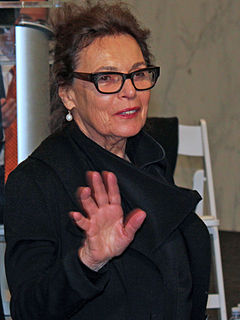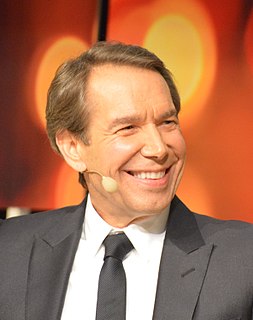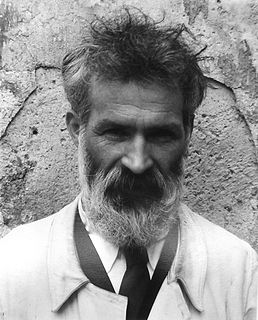A Quote by Michael C. McMillen
I don't need to control the mind of my viewer. Now this might sound contradictory because I want to make these installations set up an environment that will produce a certain kind of experience in the viewer, but beyond a certain point, I take hands off and leave it up to chance and personal experience. So maybe it's a marriage of control and no control we're talking about where the artist produces the artifact or the environment and then walks away from it, and the second half of the equation is the viewer and their personal history and how they feel about what they're experiencing.
Quote Topics
About
Artist
Away
Because
Beyond
Certain
Certain Point
Chance
Contradictory
Control
Environment
Equation
Experience
Experiencing
Feel
Half
Hands
History
How
Kind
Leave
Make
Marriage
Maybe
Might
Mind
Need
No Control
Now
Off
Personal
Personal Experience
Personal History
Point
Produce
Produces
Second
Set
Sound
Take
Talking
Then
Up
Viewer
Walks
Want
Will
Related Quotes
I want to create objects that will stimulate the viewer in ways that I am stimulated by these objects. Now that's an ideal situation and the artist has no control over what his audience is going to think, but they can try to communicate some quality, some poetry through the work and just hope that the viewer has something in the vicinity of a similar experience.
I mean, I really don't want the federal government to be determining whether or not a person who feels certain ways about the environment or about animals or about certain religious issues should be considered an extremist. That to me is a type of thought control, mind control, which is very dangerous.
I remember talking to, 40 years ago, one of the leading people in the government who was involved in arms control, pressing for arms control measures, détente, and so on. He's very high up, and we were talking about whether arms control could succeed. And only partially as a joke he said, "Well it might succeed if the high tech industry makes more profit from arms control than it can make from weapons-related research and production. If we get to that tipping point maybe arms control will work." He was partially joking but there's a truth that lies behind it.
My personal feelings on marriage? Samuel Johnson once said that second marriages - although I could probably say this about any marriage - are about the triumph of hope over experience. I think that's true. I don't know that human beings were meant to mate for life or be monogamous. But, for me, the aspect of marriage that is troubling is that it's a contract that is governed by the state, and I don't want the state to have control over my personal affairs.
A lot of the pieces I've done over the years have involved alterations of scale and the idea of the viewer's relationship to the object and how we see things by either enlarging or reducing objects, it causes the viewer to look at them again. It's hard to do because our culture is so bombarded by images and media. How do you make something fresh for a viewer? That's a real challenge.
Hollywood films are alienating to the spectator because they use too much dialogue, too much explication and leave no space for the viewer. They depress me. I use direct sound, mono not stereo. Just direct sound, so for every shot there are only two sources. Sound creates an intimate effect: the sensation to feel the place. It makes the viewer enter. You have the liberty to hear what you want.





































